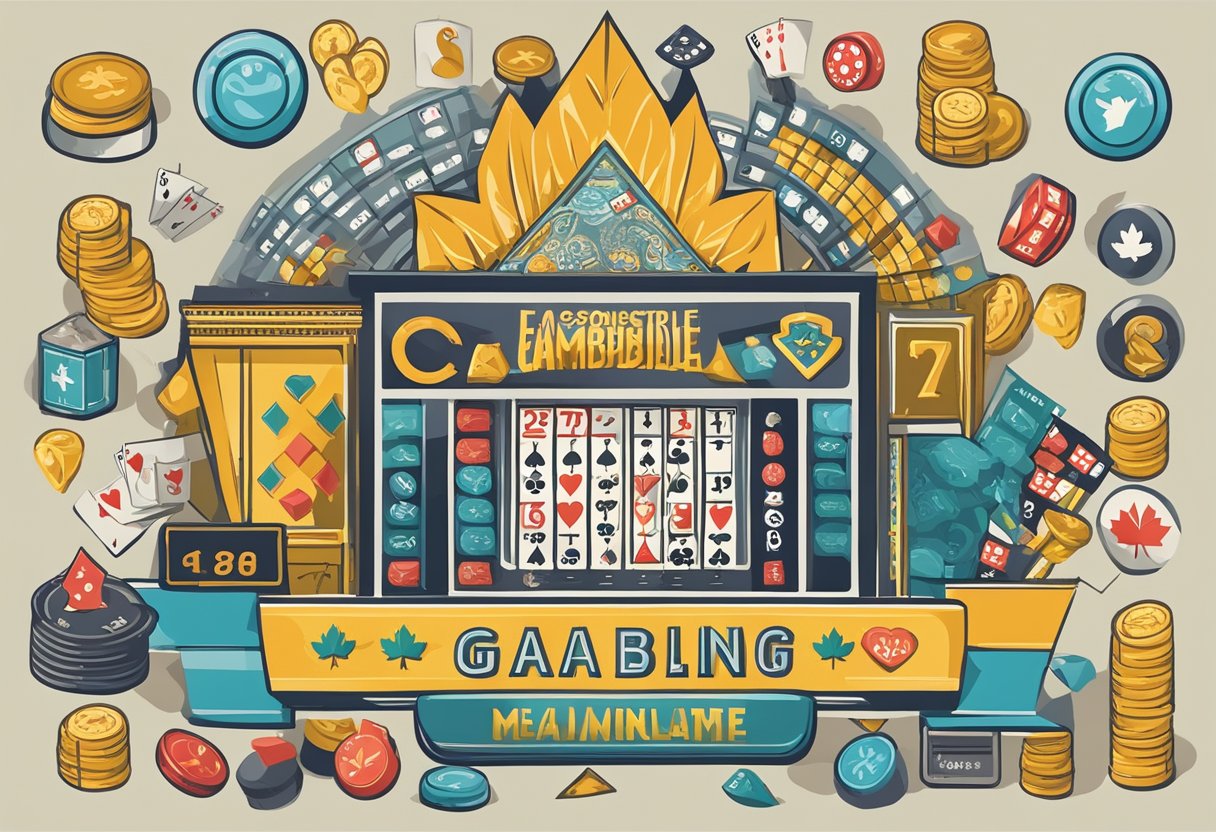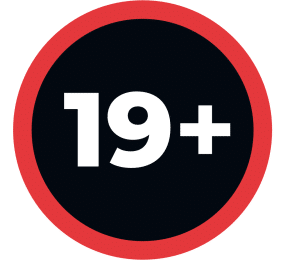Gambling has become a popular form of entertainment across Canada, with both traditional casinos and online platforms offering various gaming options. As this industry grows, Canadian gambling authorities have focused on developing effective responsible gambling measures to protect players. Recent studies show that responsible gambling tools like deposit limits, cooldown periods, and self-exclusion programs have significantly reduced gambling-related harms while allowing recreational players to enjoy gaming activities safely.

The Responsible Gambling Council in Canada leads many initiatives to promote safer gambling practices through research and education. Their work influences positive changes in the gambling industry by advancing evidence-based approaches to gambling harm prevention. Canadian online casinos have embraced this framework by implementing features that help players maintain control over their gambling habits.
These responsible gambling programs include enforced breaks in play, automatic informative messages, and behavioural tracking tools that allow players to monitor their gambling patterns. Canada’s approach to responsible gambling balances the enjoyment of recreational gaming with practical measures that help prevent excessive gambling behaviours, making it a model for other jurisdictions looking to promote safer gambling environments.
Overview of Gambling in Canada

Gambling in Canada represents a significant cultural and economic activity with provincial governments regulating most forms of betting. The landscape has evolved dramatically in recent years with digital platforms changing how Canadians access gambling services.
Legal Landscape and Statistics
Gambling in Canada falls under provincial jurisdiction, with each province operating its own regulatory framework. The Canadian Criminal Code permits provinces to regulate and operate gambling activities, including casinos, lotteries, and sports betting.
In 2018, Canadians spent approximately $17.1 billion on government-run gambling activities, according to Statistics Canada. This represents about $503 per Canadian adult annually.
Provincial lottery corporations serve as the primary gambling operators in most regions. Ontario, British Columbia, and Quebec maintain the largest gambling markets in the country.
Problem gambling affects between 0.6% and 1.2% of Canadian adults, according to health surveys. This translates to roughly 300,000 individuals experiencing gambling-related harms.
Changing Trends in Online Gambling
Online gambling has transformed Canada’s betting landscape significantly since 2010. Many Canadians now access gambling services through digital platforms rather than traditional brick-and-mortar establishments.
Provincial governments have responded by launching their own regulated online gambling sites. These include PlayOLG in Ontario, PlayNow in British Columbia, and Espacejeux in Quebec.
The COVID-19 pandemic accelerated the shift toward online gambling, with many players transitioning to digital platforms during lockdown periods. Online gambling revenue increased by approximately 15-20% during this time.
Mobile gaming represents the fastest-growing segment of online gambling in Canada. Approximately 60% of online gambling activity now occurs on smartphones and tablets rather than desktop computers.
Recent regulatory changes, particularly in Ontario, have opened the market to private operators, creating a more competitive online gambling environment.
Responsible Gambling Council and RG Check Accreditation

Canada leads in responsible gambling initiatives through specialized organizations and accreditation programs. These efforts help gambling venues maintain ethical standards and protect vulnerable players.
Role of the Responsible Gambling Council
The Responsible Gambling Council (RGC) is an independent non-profit organization based in Canada that focuses on problem gambling prevention. For decades, the RGC has developed evidence-based strategies to promote safer gambling practices nationwide.
The Council conducts research on gambling behaviours and creates educational programs to help players make informed choices. They work directly with gambling operators to implement effective responsible gambling policies.
RGC collaborates with government agencies, treatment providers, and industry stakeholders to create comprehensive approaches to gambling harm reduction. Their initiatives include public awareness campaigns, venue staff training, and the development of self-assessment tools for players.
Importance of RG Check Accreditation
RG Check is considered the gold standard in responsible gambling accreditation in Canada and internationally. It provides a rigorous framework for evaluating how well gambling venues protect their customers from gambling-related harms.
The accreditation process helps gambling venues and iGaming sites evaluate, monitor and manage all aspects of their responsible gambling strategy. This includes comprehensive reviews of policies, procedures, and actual practices.
Key components of RG Check include:
- New game screening from a responsible gambling perspective
- Staff training requirements
- Self-exclusion program evaluation
- Player education materials and accessibility
- Advertising and promotion standards
For Ontario’s regulated iGaming market, RG Check accreditation has become an essential tool for maintaining high standards. Venues that achieve accreditation demonstrate their commitment to player protection and responsible operations.
New Measures for Responsible Gambling

The Canadian gambling industry has recently implemented several innovative approaches to promote responsible gambling practices. These measures aim to reduce potential harms while maintaining entertainment value for players.
Updated Policies and Regulations
Ontario has taken a leading role in modernizing responsible gambling regulations. In 2022, the province launched its regulated online gambling market with strict requirements for operators. These rules include mandatory player protection features on all platforms.
The Responsible Gambling Council (RGC) has worked with provincial regulators to develop new standards. These standards require gaming operators to implement stronger verification processes and spending limits.
Manitoba’s government recently issued new orders focusing on problem gambling prevention. These orders require casinos to enhance staff training on identifying at-risk players.
Several provinces now mandate regular independent audits of responsible gambling programs. These audits ensure operators comply with regulations and continuously improve their harm reduction strategies.
Innovative Tools for Safe Gambling
Canadian online casinos have introduced several technology-based solutions to promote safer play. Deposit limits allow players to set maximum amounts they can add to their accounts daily, weekly, or monthly.
Cooldown periods give players the option to take short breaks from gambling. These breaks range from 24 hours to several weeks without account access.
Self-exclusion programs have been enhanced with improved verification systems. These systems use advanced identification technology to prevent excluded individuals from accessing gaming venues or online platforms.
Reality checks appear as pop-up notifications during play. These reminders inform players about:
- Time spent gambling
- Money wagered
- Wins and losses
- Suggested break times
Data analytics tools now help identify problematic gambling patterns before serious harm occurs. These tools monitor play behavior and can trigger interventions when concerning patterns emerge.
Advertising and Public Awareness Campaigns
The RGC has launched targeted awareness campaigns about gambling risks. These campaigns appear on television, social media, and within gambling venues themselves.
Advertising restrictions now limit when and where gambling ads can appear. These restrictions aim to reduce exposure to vulnerable populations, especially youth and problem gamblers.
Warning messages on gambling advertisements have become more prominent. These messages clearly state the risks of gambling and provide resources for those seeking help.
Public education initiatives focus on teaching Canadians about odds and probability. These programs help players understand that gambling should be viewed as entertainment, not as a way to make money.
Partnerships between operators and mental health organizations have expanded. These collaborations create more comprehensive support systems for those experiencing gambling-related problems.
Assessing the Effectiveness of Responsible Gambling Practices
Canadian gambling regulators have implemented various responsible gambling measures over the past decade. These interventions aim to protect players while allowing recreational gambling to continue. Evaluating these programs requires both measurement of current effectiveness and comparison with global standards.
Evaluation of Current Programs
Research on responsible gambling tools in Canada shows promising results. Studies indicate that behavioural feedback tools can effectively reduce gambling expenditure among at-risk players. These tools provide gamblers with information about their playing patterns and spending habits.
The most successful programs combine multiple approaches:
- Player-focused education about gambling risks
- Self-exclusion programs with strong enforcement
- Spending limits that players can set themselves
- Reality checks that display time and money spent
Data from Canadian casinos suggests that 60% of players who use responsible gambling tools report better awareness of their gambling habits. However, reaching vulnerable populations remains challenging. Only about 25% of problem gamblers actively engage with available resources.
Comparative Analysis With International Standards
Canada’s responsible gambling framework compares favourably with international standards, though improvements are possible. Australian and European models offer valuable insights for Canadian programs.
Key international comparisons:
| Region | Strengths | Potential Lessons for Canada |
|---|---|---|
| Australia | Mandatory pre-commitment systems | Stronger technological solutions |
| UK | Strict advertising regulations | Better protection for youth |
| Nordic countries | Centralized player tracking | More comprehensive monitoring |
Canadian responsible gambling measures meet most international benchmarks, particularly in self-exclusion programs and staff training. However, Canada lags behind some European countries in implementing mandatory spending limits and comprehensive player tracking systems.
Recent evaluations show that jurisdictions with integrated approaches—combining education, limits, and support services—demonstrate better outcomes for reducing problem gambling rates.
Support Services for Problem Gambling
Canada offers several resources for individuals struggling with gambling addiction. These support networks range from free helplines to specialized therapy programs, with provincial governments and organizations working together to address problem gambling.
Available Support and Resources
Problem gambling affects thousands of Canadians each year. For those seeking help, the Gambling Therapy service provides free online support, offering both practical advice and emotional assistance to those affected by gambling issues.
Each province maintains dedicated helplines where players can reach out for immediate support. CAMH (Centre for Addiction and Mental Health) offers specialized treatment services focused on problem gambling and technology use, helping people whose gambling habits have created difficulties in other aspects of their lives.
Many provincial organizations like the Responsible Gambling Council provide educational resources to help players recognize signs of risky gambling behaviour. These resources include self-assessment tools and information about setting healthy limits.
Self-Exclusion Programs and Their Impact
Self-exclusion programs are key components of Canada’s responsible gambling framework. The Ontario Lottery and Gaming Corporation (OLG) and other provincial operators maintain robust self-exclusion systems where players can voluntarily ban themselves from gambling venues and online platforms.
Research suggests these programs are most effective when combined with counselling and support services. Players who participate in self-exclusion programs often report reduced gambling behaviours and improved financial situations.
The effectiveness of these programs continues to improve with technological advancements. Facial recognition at casinos and digital verification for online platforms have strengthened enforcement of self-exclusion agreements.
Provincial gaming authorities regularly assess and enhance their self-exclusion programs based on participant feedback and success rates.
Operator and Industry Responsibilities
Canadian gambling operators bear significant responsibilities in creating safe gaming environments. These companies must follow strict regulations while implementing effective harm reduction strategies to protect players.
Ensuring Compliance and Ethical Practices
Gambling operators in Canada must adhere to provincial regulations that vary across the country. The Alcohol and Gaming Commission of Ontario (AGCO), for example, requires operators to implement policies that identify, prevent, and minimize risks of gambling harm. These regulations are among the strictest in North America.
Operators must:
- Conduct thorough player verification checks
- Monitor for signs of problem gambling
- Offer self-exclusion programs
- Provide spending limits and cooling-off periods
- Report compliance data to regulatory bodies
Since 2022, Ontario has allowed private operators to offer legal online gambling under AGCO regulation. This system emphasizes accountability, requiring companies to demonstrate how they mitigate harm while conducting business.
Creating a Safe and Enjoyable Experience for Players
The gaming industry’s responsibility extends beyond legal compliance to creating environments where players can gamble safely. Responsible operators use technology and training to protect vulnerable individuals.
Effective player protection measures include:
- Clear information about game odds and payout percentages
- Time and deposit limits that players can set themselves
- Reality checks that remind players how long they’ve been gambling
- Prominent responsible gambling resources and helpline information
- Staff training to recognize distress signals
The Responsible Gambling Council works with Canadian operators to develop harm prevention strategies. This collaboration helps create balance between enjoyable entertainment and player safety.
Many operators now feature responsible gambling tools directly within their platforms, making them easily accessible rather than hidden in fine print.
Conclusion
Responsible gambling initiatives in Canada have evolved significantly over time, becoming more comprehensive and evidence-based. These measures aim to protect players while allowing them to enjoy gambling activities safely.
Canadian provinces have implemented various approaches, including self-exclusion programs, spending limits, and educational campaigns. Research shows these tools can be effective when properly designed and implemented.
The success of responsible gambling measures depends largely on collaboration between regulators, operators, and health professionals. When these stakeholders work together, the framework becomes stronger.
Players benefit most when they understand and utilize the available responsible gambling tools. Increased awareness campaigns have helped more Canadians recognize the importance of setting limits and gambling within their means.
Moving forward, Canadian gambling authorities should continue evaluating the effectiveness of their responsible gambling programs. Data-driven approaches will help identify which measures truly reduce gambling harms.
Technology will likely play an increasing role in responsible gambling strategies. Artificial intelligence and player tracking systems offer promising ways to identify at-risk behaviours earlier.
The Canadian approach to responsible gambling balances consumer protection with personal freedom. This balanced perspective respects that most adults can make informed choices while providing safety nets for vulnerable players.





